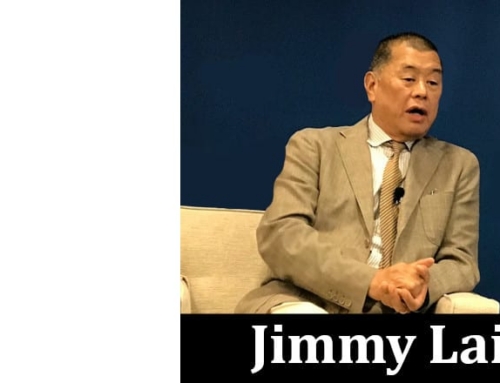When truth doesn’t matter, all things are possible, including some very unseemly things.
There is a front-page article in the September 25 edition of the New York Times that is as fascinating as it is disturbing. Well researched, it is the story of Amy Griffin, one of the richest women in the country. She is the 49-year-old author of The Tell, a best-selling memoir that recounts her recollections of being raped on several occasions by a middle-school teacher in Amarillo, Texas, starting when she was 12.
Her recollections were not of the ordinary kind—they were drug-induced memories. To be specific, she claims that her memory was repressed until she took MDMA, a drug found in Ecstasy and Molly. The allegations she made against the teacher were disclosed during therapy sessions while under the influence of the illegal psychedelic drug.
The newspaper would not have posted a 5,000 word article about Griffin unless she was a VIP. And that she is. The glitterati who came rushing to her side, promoting the book, include Oprah Winfrey, Jenna Bush Hager, Gwyneth Paltrow and Reese Witherspoon. The latter spoke for many when she said, “By opening up her heart, she became a beacon for women everywhere.”
She spoke too soon.
What do we know about the alleged rapist? We know that he has worked in the school district for 30 years and his record is spotless: there has never been one complaint made about him.
Suspicions about Griffin’s account have mushroomed. “Some have questioned the reliability of decades-old memories unearthed during drug-assisted therapy.” Others are questioning why no one knew anything about what allegedly happened. Where are the bruises from her violent experiences? There are many other serious issues with Griffin’s story.
She claims that subsequent to her memory being jarred, she believes that one of her childhood friends, “Claudia,” was also abused by the same teacher. But when Griffin asked her about this she said no. Griffin also writes about an incident that took place at a church youth group gathering in her house. But her family says they never hosted such an event.
In her book proposal, Griffin said another man had raped her. But she made no mention of it in her memoir. When she reported her claims of abuse to a detective, she never told him her account was a recovered memory, induced by drugs. More important, he says that from his experience, sex crimes against children typically have many victims. Yet no one, other than her, has ever accused the teacher of anything.
When New York Times reporters asked Griffin for an interview, she stiffed them for more than three months. To top things off, her lawyer said that by asking her to answer 11-pages of questions, “the mere sending of this document has caused additional trauma and extreme physical and emotional harm to a survivor of sexual assault, which is inexcusable.”
Rick Doblin is the nation’s biggest advocate of the therapeutic drug MDMA; he also connected her to her therapists. When asked about the reliability of “repressed memories,” he said, “Whether it’s real or not—meaning whether the incident actually happened—from a therapeutic perspective, it doesn’t matter. A lot of times people will develop stories that help them make sense of their life. In the therapeutic setting, what Amy went through whether it’s true or not, it has value because the emotion is real.”
This is what happens when the quest for truth is abandoned: falsehoods can be treated as a positive good—even if they ruin someone’s life—as long as they bring solace to the complainant.
Why should Catholics care about this story?
Father Gordon MacRae is sitting in a New Hampshire prison today because an ex-con claimed that once his “repressed memory” was unleashed, it allowed him to recall that MacRae abused him many years earlier. And he is not the only priest to have suffered this fate.
Sociologist Richard Ofshe and journalist Ethan Watters studied the issue of “repressed memory” and they noted that “it has never been empirically demonstrated.” Dr. Paul McHugh, the renowned Johns Hopkins psychiatrist, has long dismissed this as a dangerous idea that literally manufactures victims. Researchers at Harvard Medical School found that “repressed memory” is a “cultural creation having no basis in science.”
William O’Donohue, and other clinical psychologists at the University of Nevada, Reno, studied the literature on this subject and concluded that “there is a large amount of scientific evidence that clearly shows that repressed memories simply do not exist.” People do not forget their trauma, they said. “Indeed, traumatic events are actually quite memorable.”
The media should ask Oprah, Jenna, Gwyneth and Reese, along with Amy Schumer, Laura Dern, Naomi Watts, Anna Wintour, Savannah Guthrie, and Katie Couric, how they feel now about their heroine.
Assuming that accused men are definitely guilty of sex crimes against women has become so easy, especially for cultural elites. But as this story reveals, those who rushed to Griffin’s side are the ones with egg on their face. Throwing the first stone can be risky.










